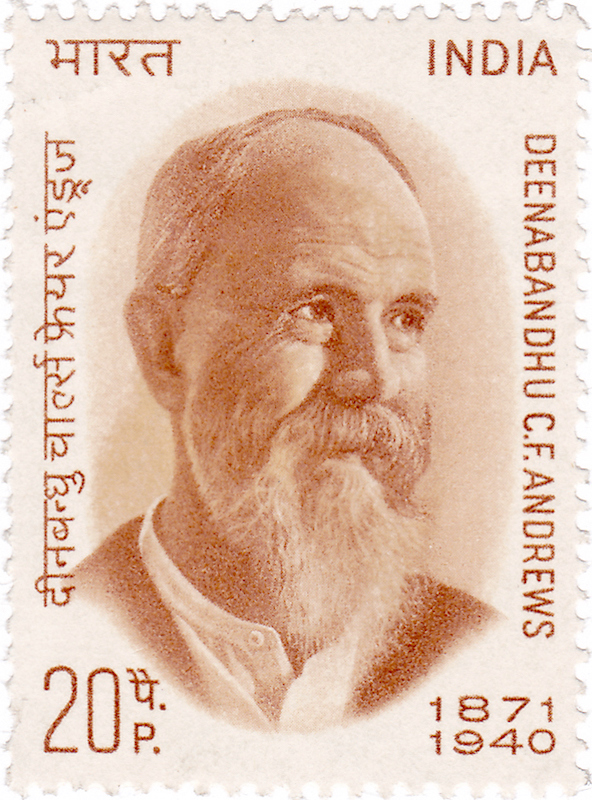Readings for the feast day of Charles Freer Andrews, Friday, February 12, 2021:
In Jesus’ instructions to his disciples from our Gospel reading today, he describes their ministry as being students of God, and ultimately, servants of humanity. Charles Freer Andrews certainly took both to heart in his ministry. What might we learn from the life of the man who was one of the very few who called Mahatma Gandhi “Mohan”, and Gandhi called “Charlie?”
For starters, few people would have predicted that he would have ended up as an Anglican. Andrews was born in 1871 in Newcastle upon Tyne in England to a family who were practitioners of the Catholic Apostolic Church–a sect that believed in prophecy, speaking in tongues, and the regular occurrence of healing miracles–considered to be one of the ancestors of what would come to be known in the United States as Pentecostalism. His father held the title of “angel” (roughly equivalent to a bishop) in Birmingham. Yet he began to embrace Anglicanism in his teenage and college years and was ordained first as deacon (1896) and priest (1897) in the Church of England. He accepted a post as the vice-principal of Wescott House Theological College in Cambridge–and despite being an administrator, one might say that is where his studenthood began.
Andrews became extremely interested in various expressions of the Gospel’s compelling evidence towards social justice, and he was troubled by Britain’s commitment to colonialism in light of the Gospel evidence. He accepted a faculty post at St. Stephen’s College in Delhi, and was quickly shocked by the racist behavior of Britons in India. He had befriended many students and their families, and became a student of the Indian home rule movement and a mediator for the Indian National Congress, serving as one of the negotiators who helped settle the Madras cotton worker’s strike in 1913.
By this time, his gentle, calm, persuasive powers were well known in India–particularly by senior Indian political leader Gopal Krishna Gokhale. Gokhale had been studying someone in South Africa who might have the ability to further their movement, a young London trained, South African barrister of Indian descent–Mohandas Gandhi. Perhaps Charles Andrews’ persuasive powers could be used to convince Gandhi to return to India. Andrews traveled to South Africa in 1914, and was immediately attracted to Gandhi’s unassuming manner and commitment to nonviolence. He was also impressed with Gandhi’s knowledge of Christian principles, although Gandhi was clearly Hindu through and through. Gokhale’s studying paid off–Gandhi returned to India in 1915. Gandhi and Andrews, by now, had truly become friends, and remained so, even though they differed on whether India should participate in the First World War.
Sometimes, though, studying and serving can have difficult consequences. Although Andrews played a premier role in the beginning steps of Indian independence, there came a time that Gandhi, the teacher, had to tell Andrews that it was time for him to step aside and leave the rest of the struggle to Indians. It was a blow, to be sure, but his servant’s heart understood, and he spent the remainder of his life in the U.K,, educating the next generation of Britons about Christ’s call into radical discipleship. He still visited India frequently, not to serve, but as a friend who was capable of learning more from those he previously served.
What unique lessons are you learning, as you follow Christ? How might those lessons be calling you to serve in new and unexpected ways?
Maria Evans splits her week between being a pathologist and laboratory director in Kirksville, MO, and gratefully serving in the Episcopal Diocese of Missouri , as the Interim Pastor at Christ Episcopal Church, Rolla, MO.

